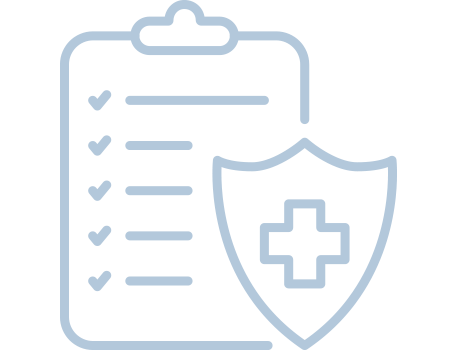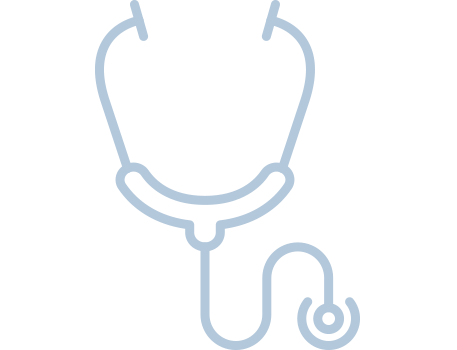Adolescent Eating Disorder Programming
Evidence-based treatment with a client-centered approach that prioritizes collaborative care and recovery.
Adolescent Program Details
The Outpatient Adolescent EDP is tailored to the needs of the individual and treats the following Eating Disorders: Anorexia Nervosa, Bulimia Nervosa, Binge Eating Disorder, Avoidant/Restrictive Food Intake Disorder (ARFID), Other Specified Feeding and Eating Disorder (OSFED), Orthorexia, and disordered eating.
This program is comprised of the following elements which are tailored to the unique needs of the individual and their family:

Comprehensive Multidisciplinary Intake
The first step in our program to properly determine your needs.

Individual Therapy
Evidence-based treatment to guide you toward recovery.

Dietetic Support
Meal planning and myth-busting for each stage of recovery.

Caregiver Support
We recognize the importance of involving parents in treatment and provide various options throughout.

Recovery Reviews
Assessments of the client’s symptoms every 3-4 months to track progress and inform care.
Adjunct Treatment Options for Adolescents
To further personalize care and meet the unique needs of each client, the following services can be added to treatment where needed.

Group Treatment
Specialized groups including DBT Skills, RO-DBT, Body Image groups, and more.

Medical Monitoring via TPWG+MD
In-house medical monitoring with a physician specifically trained in eating disorders.

Medication Consultations
Medication optimization assessments with a physician or nurse practitioner.
*OHIP-funded services may be accessed only with a valid Ontario Health Card and physician referral.
EDP Frequently Asked Questions
Can you walk me through what the process looks like?
Absolutely! When you reach out to TPWG, our intake team gathers relevant information and sends along personalized recommendations. Adolescents with symptoms of an Eating Disorder generally begin with our Comprehensive Multidisciplinary Assessment, which involves meetings with a psych team member, physician, and dietitian specialized in Eating Disorders. Our team consults to arrive at a diagnosis (where warranted) and to determine a personalized recommendation for treatment. This is shared with you in a feedback session. This approach allows us to determine evidence-based approaches for your presenting concern.
Treatment begins after feedback and typically involves regular therapy and dietetic support (in person, virtually, or hybrid). Caregivers are involved throughout the process and are able to have their own therapist to provide guidance, as well. Our team continues to meet weekly to liaise in your loved one’s care, and we follow their progress using assessment tools and observations. Those needing additional support are able to add on other treatments such as medical monitoring, medication optimization assessments, DBT group therapy, meal support, and more.
What’s the fastest way to get started with the EDP?
Please submit a match form via our website and we will respond with your personalized recommendations within 24-48 business hours. You are welcome to phone the office during regular business hours, but email is typically fastest! You may also have your physician submit a referral via our physician referral page. This allows the physician portion of your treatment to be covered by OHIP and ensures continuity of care.
Who is the Adolescent EDP intended and designed to support?
The treatment within our EDP is customized to the client’s needs. It’s intended for the following presentations: Those new to Eating Disorder treatment; those who have received some form of treatment in the past; those who have been recently discharged from more intensive treatment (inpatient/day program); OR who are on a waitlist for OHIP-covered eating disorder treatment and require symptom interruption or preventative work.
How long does the program take?
The program length is completely dependent on the severity of symptoms, the client’s willingness to participate in treatment, and parent/caregiver’s ability to implement recommendations within the home. Treatment typically takes between 6 months to 1 year, though more severe presentations may take longer.
How do you measure success in this program?
Success in our adolescent ED program is measured using our Recovery Review every 3 months, which incorporates a physician and therapist assessment and evidence-based assessment measures that look at specific domains of psychological and behavioural functioning.
I don’t think we need to see a dietitian, can we just skip that?
A dietetic assessment and treatment is a requirement for anyone in the EDP. This allows your treatment team to properly assess your intake, daily needs, healthy weight range, and establish proper goals for refeeding or balancing your intake. We cannot adequately treat an Eating Disorder without this. Ongoing dietetic support is generally necessary for successful long term outcomes. Those with consistent dietetic support typically recover more quickly.
I don’t think I need a Comprehensive Intake Assessment, can we just skip that?
Comprehensive intake assessments allow us to gather all the medical, psychological, and dietetic information relevant to establish the right treatment plan for each client. This is part of what makes TPWG’s EDP unique, as we do not believe in a one-size-fits-all approach. That being said, if clients have been given recent diagnoses, have a physician already managing their care, are currently involved in dietetic treatment, or have recently been discharged from a hospital program, we can adapt this intake process to meet individual needs where warranted.
Why are parents required to attend the caregiver workshops?
Parental involvement is significantly related to therapy outcomes. Parents must create an environment within the home that is conducive to recovery and not reinforcing the ED. With the right skills, parents can expedite treatment and reduce their child’s distress during recovery. We deeply believe in parents’ ability to help their teens heal, and we want to ensure you are armed with the right tools to facilitate this.
What other supports are available for my teen?
Additional group supports are available at the clinic, including DBT Skills Group and RO-DBT Skills Group, both of which are evidence-based for the treatment of Eating Disorders. Other groups at TPWG occur regularly and are shared on our website and social media. Snack and/or meal support is also available with our dietitians and can be helpful for working parents who may not be able to monitor meals.
Medical support is also available at the clinic. While teens will meet with a physician where applicable as part of our comprehensive intake assessment, ongoing medical monitoring is also available. Consultations with our Adolescent Medicine physician and NP are both available, as well. These professionals are able to address concerns pertaining to psychiatric medication and provide medication optimization assessments and follow-up care as needed.
How do you ensure medical stabilization?
TPWG‘s unique multidisciplinary program allows us to collaborate closely and consistently with medical providers to assess physical stability throughout treatment. Our physicians and NP are specifically trained in the assessment and management of Eating Disorders, having worked in this field for many years. They can consult with your family physician in your care or can oversee medical monitoring for you at the clinic.
How do I know if we need Family Based Treatment or a different approach?
The Comprehensive Intake Assessment allows our team to determine the appropriate course of treatment for the youth. Engagement in any particular approach is dependent on a number of factors, including past treatment, symptom severity, and your teen’s level of independence. It is important to us to create a treatment plan that aligns with your family’s unique needs. Our Recovery Review process allows us to monitor the client’s progress and make modifications where needed. This process also naturally establishes ‘check-in points’ within treatment to ensure an individual progresses as planned.

